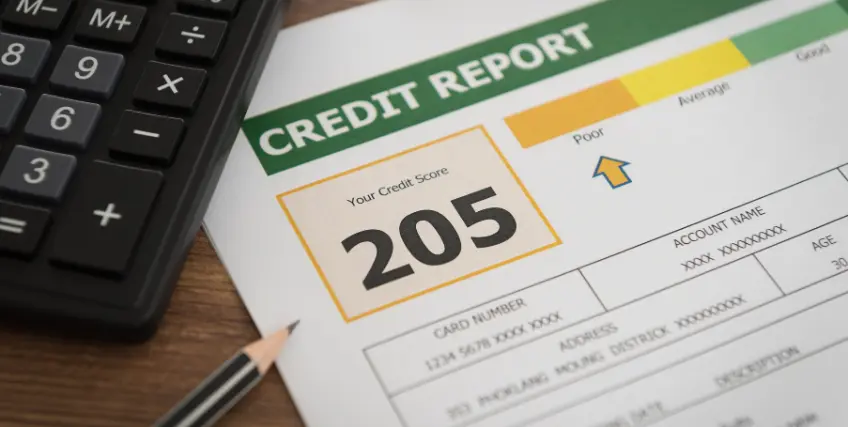Why MCA Business Funding May Be Ideal for Retailers Looking to Expand Inventory
March 4, 2025 | Last Updated on: March 4, 2025

Whether you’re preparing for a busy season, stocking up on new products, or taking advantage of discounts from suppliers, retailers need access to capital. If the need is urgent, an MCA business advance could be a solid choice.
A Merchant Cash Advance (MCA) provides small business owners with a lump sum of funding in exchange for future receipts. This can be a great way for small businesses to leverage their future sales for capital needs today. However, an MCA can come with notable fees and costs from funding providers that small business owners should consider.
Understanding Merchant Cash Advances
Here’s how a merchant cash advance works:
A merchant cash advance (MCA) is a way for small businesses to get business financing based on their future receivables from customers such as credit card sales. Because MCA business funding is based on receipts and not credit, your credit score may not be needed when it comes to determining eligibility. This is different as lines of credit and other traditional business loans will lean heavily into your credit score during the application process.
MCA business funding isn’t a loan, but rather a cash injection into a small business that can come in handy during a cash crunch. And they aren’t repaid like a normal loan either. The total amount to be repaid is calculated using a factor rate, typically between 1.1 and 1.5, meaning the business repays more than the original amount borrowed.
The flexibility of MCAs makes them especially appealing to businesses with fluctuating cash flow, as they don't have to worry about fixed payments during slower periods. However, it’s advised that small business owners run the total cost of an MCA business advance to see how it could impact future cash flow. Additionally, be sure to shop around between merchant cash advance providers as factor rates and fees can vary, making the cost of the advance differ.
These factors make an MCA business funding a solid option for retail businesses. Here’s why a merchant cash advance could come in handy as you’re expanding your inventory.
Why Retailers May Need MCA Funding for Inventory Expansion
Retailers often face the challenge of balancing inventory needs with cash flow limitations, especially during peak seasons or when new product trends emerge. Stocking up on inventory is essential to meet customer demand, but it can sometimes require a large upfront investment.
The issue is that a traditional small business loan can take months for approval, and retailers don’t have that time flexibility. This is where Merchant Cash Advance (MCA) funding comes in as you can sometimes be approved in as soon as a few business days. This type of financing makes it appealing for small business owners who need cash quickly to ensure they meet their urgent needs.
Additionally, a retailer could benefit from this financing option as it comes with a flexible repayment structure. As your invoices or credit card receipts come in, the repayment will be based on that. A traditional bank loan will typically have set repayment terms with a fixed monthly payment. Merchant cash advance companies will set up repayment to typically come directly from your business bank account.
Lastly, MCA providers typically don’t ask for collateral as part of the agreement, whereas other small business funding options might. This can be quite helpful for a small business that may be building up its assets, along with minimizing risk.
Conclusion
If you’re debating if a long term loan vs short term is right for you, consider the urgency of your capital needs first. If you have some time, a traditional bank loan could be the right option for you. However, if you need small business financing within a few days for business needs, the expedited approval process for an MCA business advance could be a solid option.
FAQs about MCA business funding
What is MCA business funding?
Merchant Cash Advance (MCA) business funding provides a lump sum of capital to businesses in exchange for a portion of future sales.
Why is managing cash flow important in a small business?
Managing cash flow is important for small businesses to ensure they can manage expenses and avoid financial shortfalls that could disrupt operations.
How does an MCA business cash advance work?
A MCA business advance works by selling future receipts to a lender in exchange for a upfront lump sum.
What is the typical repayment period for a Merchant Cash Advance (MCA)?
The typical repayment period for a Merchant Cash Advance (MCA) can range from 3 to 18 months, depending on the repayment terms with the provider.
Frequent searches leading to this page
business cash flow, management, interest rates comparison, discounted cash flow, refinance rates
Recent Articles
Related Articles

Can You Renegotiate Terms on MCA Cash Financing After a Default? What Business Owners Need to Know
November 27, 2024

Business Loan or Merchant Loan? Understanding Loan Options for Your Business
November 25, 2024

Avoiding the Debt Trap: How Stacking MCA Business Financing Can Hurt Your Business Credit
November 7, 2024

Why MCA Business Funding May Be Ideal for Retailers Looking to Expand Inventory
November 5, 2024

Merchant Cash Advance vs. Asset-Based Lending: Which is Right for Your Business?
January 10, 2025

Merchant Cash Advance vs. Traditional Business Loans: Which is Right for Your Business?
January 10, 2025

Merchant Cash Advance vs. Line of Credit: Which is Right for Your Business?
January 9, 2025

5 Things Every Small Business Owner Wishes They Had Known When They Started
January 9, 2025

































